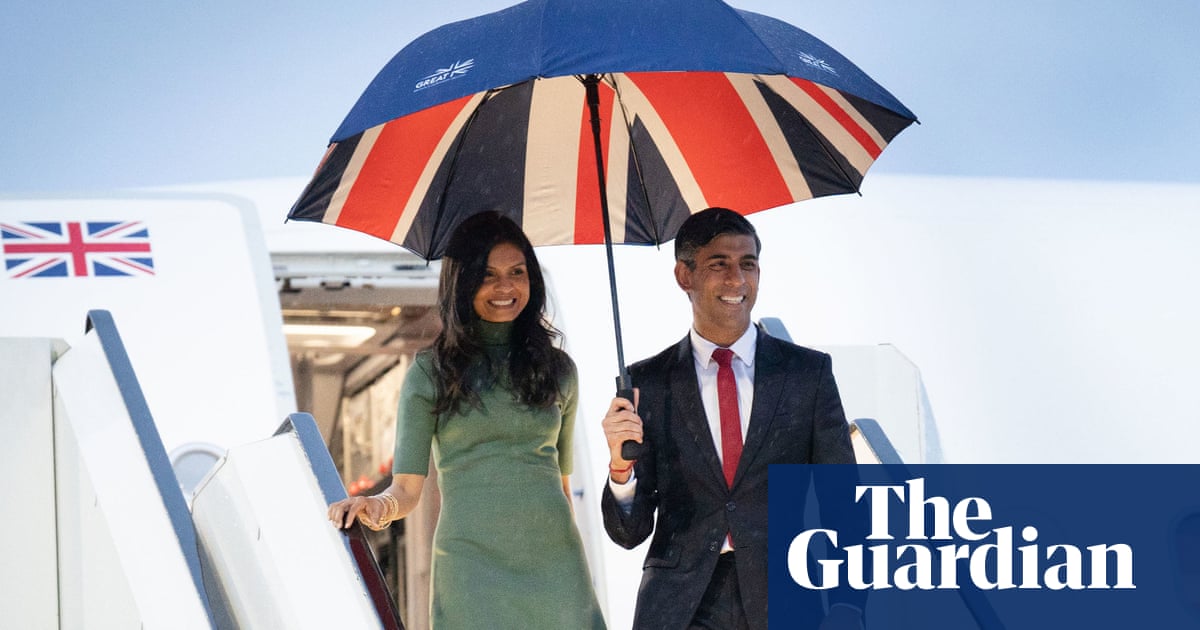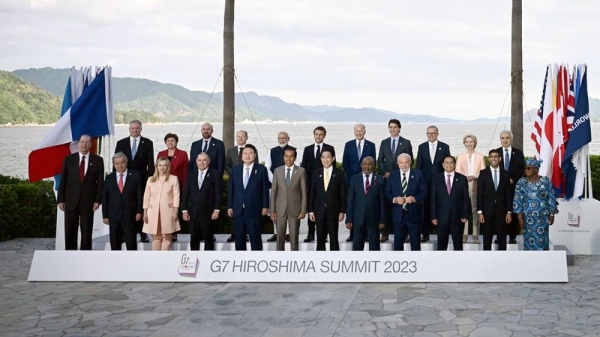
A new show of western unity against Russia and China is being lined up by the UK foreign secretary, Liz Truss, as she hosts a weekend meeting of G7 foreign ministers starting on Saturday.
The G7 meeting, held against the backdrop of a potential invasion of Ukraine, tensions in the South China Sea and the potential collapse of the Iran nuclear deal, is being billed by Truss as a “chance to show a united front against malign behaviour – including Russian posturing towards Ukraine”.
Truss will also pledge security and economic support to defend “the frontiers of freedom” around the world, a reference to the array of western infrastructure investment vehicles being assembled by the US, EU and the UK in a bid to offer a rival to the Chinese belt-and-road initiative.
It will also give Truss another chance to present herself as a businesslike modern-day Thatcher determined to get the west on the front foot – a portrait that will put her in good standing with her backbenchers if Boris Johnson were to lose their confidence.
The US secretary of state, Antony Blinken, is also likely to offer reassurances that Joe Biden did not offer substantive concessions to Russia over the future role of Nato on the eastern front in his talks with Vladimir Putin this week , or the potential ceding of Ukrainian territory. The French foreign minister, Jean-Yves Le Drian, is expected to urge Blinken not to rule out Ukrainian membership of Nato.
Russia on Friday demanded that Nato formally rescind the commitment to Ukraine and Georgia made at the 2008 Bucharest summit that they could one day become a member of the alliance.
At the same time, there are bound to be discussions on how the multiple crises can be dialled down, and whether the west is at risk of fighting on too many fronts simultaneously.
France for instance has not joined some G7 partners – the US, UK and Canada – in backing a diplomatic boycott over human rights abuses in China’s Xinjiang province.
The two-day meeting will be the first outing at a multilateral forum for the new German foreign minister, Annalena Baerbock, the co-leader of the Green party, who is being closely watched to see how she intends to apply foreign policy to Russia and China.
“The aim is to expand the reach of freedom and democracy and we take on malign actors around the world who are seeking to challenge that,” Truss said.
She said that if Russia invaded Ukraine, “it would be extremely serious, a strategic mistake and there would be severe consequences for Russia and what we are doing this weekend is working with like-minded allies to spell that out.” Truss said she wanted to work with Baerbock on the Nord Stream 2 pipeline from Russia to Germany to reduce the west’s dependence on energy and technology of authoritarian regimes.
On human rights abuses in China’s Xinjiang province, she said: “It is a matter for the courts on the issue of genocide, but I am very concerned by the appalling human rights abuses against the Uyghur people, and have said this to the Chinese ambassador.”
Germany takes over the G7 presidency from the UK in a fortnight and, in deference to the handover, there is not expected to be a long communique, but instead a relatively brief chair’s statement.
Foreign ministers from South Korea and Australia, not G7 member states, will also attend, but plans to bring over all the foreign ministers from the 10 states in the Association of Southeast Asian Nations (Asean) bloc have been heavily scaled back mainly as a result of Covid travel restrictions. They will instead be linked into the G7 meeting by video on Sunday.
Britain had been planning to focus the agenda heavily on the tilt to the Indo-Pacific, and the threat posed by China, but the massing of Russian troops on the Ukrainian border has required an adjustment on an already packed agenda.
There have been tensions in south-east Asia about the degree to which countries of the region will get sucked into making a choice between the US and China, as well as how to approach Aukus – the US, Australia and UK security pact largely focused on providing Australia with nuclear-propelled submarines.
The surprise pact, announced in September and cancelling the previous Australian contract to buy French submarines, caused uproar in France, and it is unlikely Le Drian, the French foreign minister, will greet his Australian counterpart, Marise Payne, with huge enthusiasm when they meet for the first time since what France regarded as a great betrayal by Australia.
However, Aukus is likely to be heavily endorsed by Yoshimasa Hayashi, Japan’s new foreign minister, on his first trip abroad.












